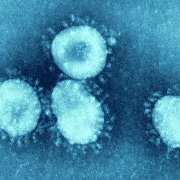Laboratory Industry Doesn’t Forget COVID-19, But Shifts Focus to Other Health Conditions at AACC 2022 in Chicago
Urgent healthcare problems were addressed at the 2022 American Association for Clinical Chemistry (AACC) meeting of lab professionals and IVD vendors in Chicago. Kidney disease, drugs of abuse, hematology and liver disease were among areas of new product development and studies.
Medical market research firm Kalorama Information (www.kaloramainformation.com) notes there were 331 contract manufacturers, 42 lab IT solution companies, 326 reagent distributors, and 252 lab service companies at the AACC meeting, in addition to well-known suppliers such as Roche, Abbott, QuidelOrtho, Beckman, and Hologic. Kalorama Information analysts attended sessions and observed trends at the AACC meeting, noting that very little focus was related to the recent pandemic.
“One thing that you didn’t hear much of at the meeting was COVID-19,” said Bruce Carlson, Vice President of Kalorama Information, part of Science and Medicine Group. “That’s not to say it wasn’t present, certainly aftermaths and impacts were discussed. But you saw laboratorians discuss genomics, pediatrics and cancer in this ‘comeback’ in-person meeting.”
Perhaps a vestige of the COVID-19 pandemic was a focus on better and faster workflows, automation and other products. Siemens Healthineers unveiled the Atellica CI 1900 Analyzer, a clinical chemistry and immunoassay testing system and lower volume version of its on-the-market Atellica clinical chemistry and immunoassay testing solution. The system, with the capacity to conduct more than 250,000 clinical chemistry tests per year is in development. Thermo Fisher Scientific displayed its new interface with the Inpeco S.A.’s FlexLab Total Laboratory Automation system (TLA), which enables primary tubes on the Inpeco LAS to be transported directly to the Thermo Scientific Cascadion SM Clinical Analyzer for automated loading, pre-treatment and analysis.
Other developments included:
- AI and the pitfalls of using it in without verification of models in lab medicine were noted at the meeting. “Understanding how implementing artificial intelligence models in laboratory medicine is not easy,” said Dr. Lucila Ohno-Machado, Professor and Chair of the Department of Biomedical Informatics, at the University of California San Diego AI in Personalized Medicine. “But trusting models one does not understand is problematic.”
- One area where AI can help is improving kidney stone diagnostics. A recent study found that FTIR spectroscopy makes mistakes in interpretation. Researchers led by Patrick Day of the Mayo Clinic reviewed analysis of 81,517 kidney stones, and determined that incorrect technologist interpretations before use of AI occurred at a rate nearly 8 times higher than after AI use.
- Hope for NAFLD Detections. Liver disease from excess fat cells in the liver not related to alcohol intake is a problem that impacts 25% of the global population. Until recently, only invasive methods were available. Siemens Healthineers announced the launch of a new non-invasive ELF test. ELF measurements have proven valuable for identifying patients with NASH with advanced fibrosis (F3 or F4) at risk of progressing to cirrhosis and/or LREs.
- AACC Rallies Against VALID Act. AACC’s member booth made the organization’s view clear on pending legislation to regulate laboratory-developed tests. AACC has long argued that VALID would burden clinical laboratories with a new, duplicative layer of onerous costs and regulation and limit patient access to laboratory developed tests (LDTs).
- Smartphone tests can predict blood clot risk: people who take warfarin need frequent testing either in clinical labs or using expensive at home tests. A team led by Kelly Michaelson, MD, at the University of Washington developed a test that quickly and inexpensively determines PT/INR using a vibration motor and smartphone camera to track movement of a copper particle in a drop of blood. The team tested 140 anonymous patients, and the tests produced results on par with standard PT/INR tests.
- Delta-9-THC Cannabinoid Testing Confirmed: A team of researchers led by Uttam Garg, PhD, of Children’s Mercy, Kansas City and the University of Missouri-Kansas City School of Medicine, conducted research to see if tests that detect delta-9-THC can also detect delta-8-THC. Garg’s team found that the cannabinoid immunoassay yielded positive results for all samples with delta-8-THC concentrations of 30 ng/mL and higher. The GC-MS method also identified delta-8-THC.
- Sweden-based CellaVision introduced their DIFF-Line, a result of the company’s acquisition of RAL Diagnostics in 2019. The three-unit workflow incudes the company’s Smear Box, which makes a blood smear from a vial. Then CellaVision’s Stain box ensures smears are stained consistently and in accordance with guidelines. And finally there’s the DC-1 single-slide automated smear analyzer, which has a high quality camera, microscope, and AI functionality.
- Theranos Whistleblowers speak: It’s been six years since AACC played a role in debunking Theranos’ fraudulent claims. At this year’s session, Erika Cheung and Tyler Shultz spoke about their role in the scandal and the ethics of laboratorians. Cheung and Shultz worked with fellow whistleblowers to reveal—both to federal regulators and the press—that the Theranos laboratory actively put patients at risk of misdiagnosis and harm by offering them unreliable tests. AACC President Dr. Stephen R. Master, who himself served as an expert witness in Elizabeth Holmes’ trial, moderated the discussion.




